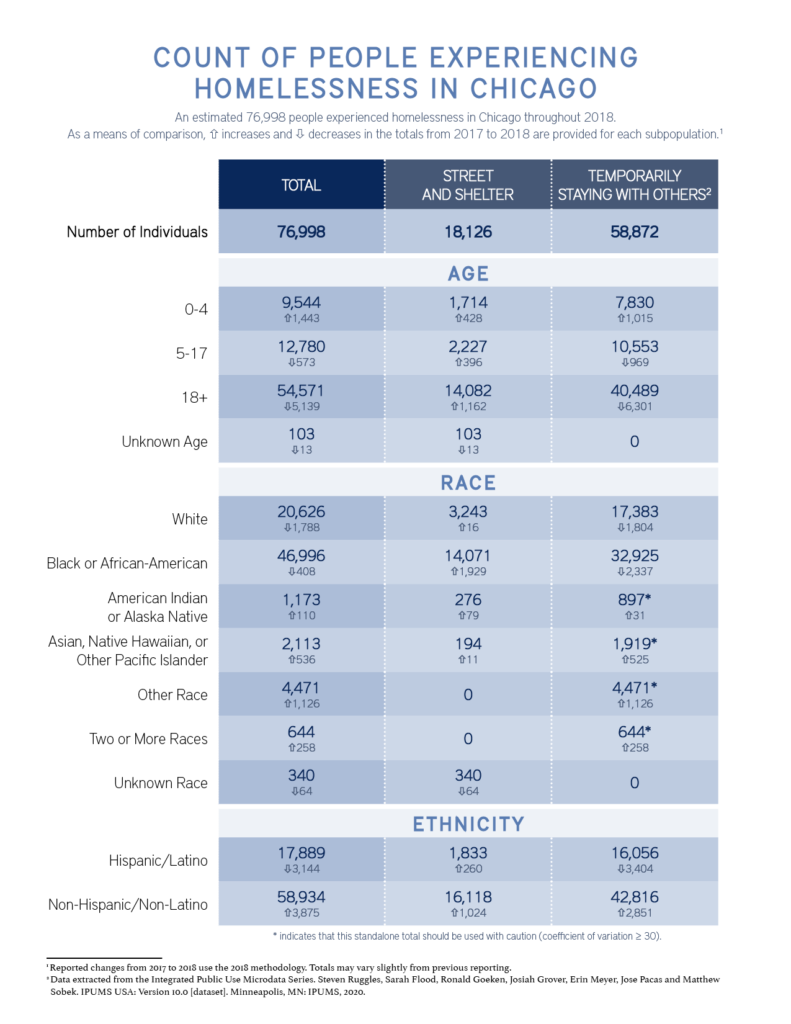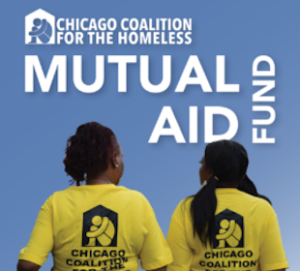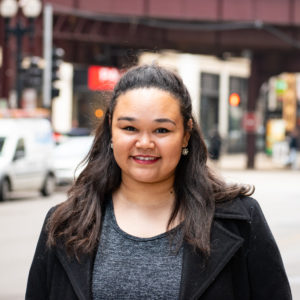Shared from the Unite to Light blog
“How do we shelter in place when we are without a home?” asks Gorge, a man living in a homeless encampment in Chicago. According to a point in time count in January of this year, Gorge is one of over half a million people in the United States experiencing homelessness in 2020. About 200,000 of those people are living “unsheltered,” meaning they are living either on the streets, or have made use of other spaces not intended for human habitation.
And things aren’t getting better for people like Gorge: Coronavirus COVID-19 has exposed the tough realities that our homeless neighbors must face every day. Shelters are overcrowded, food and water can be hard to come by and information is scarce. Thomas, another man from Chicago, told us: “Most of the policies in the city of Chicago are made for people who have a home. When they closed the city they never took us into consideration. The libraries we usually visit are closed. We cannot use them to stay warm or charge our phone. The shelters weren’t taking any new people. All restaurants closed. We have nowhere to wash up or use the washroom.”
For people experiencing homelessness, a cell phone is a vital tool of survival. A 2018 study found that almost 65% of homeless participants used their phones to communicate with medical personnel. Based on (this study) and (this study) we know that cell phones and technology-based programs have real potential for benefiting health and wellness for adults and youths experiencing homelessness. A cell phone is vital to make an appointment or call for emergency help. In a time when health professionals are asking people not to visit emergency rooms, a cell phone is a lifeline.
And while COVID-19 is increasing these demands for remote health services, it is also limiting access to electricity. Without electricity, people living on the streets cannot power their phones to access services in their community. That is why we at Unite to Light have been working hard to get solar cell phone chargers into the hands of people experiencing homelessness across the US. Since March of 2020, we have donated over 500 Solar Charger & Battery Banks to organizations on the front lines — providing services to people living on the streets of Chicago, Los Angeles, New York, Boston, Nashville and in our home region of Central California.
Let us not forget the importance of cell phones in communication with family and other services. The same study above showed that over 82% of people experiencing homelessness used their phones to contact their families.
Fay is 57 and lives in the Lawrence and Wilson encampments in the streets of Chicago. She’s been experiencing street homelessness for over two years. She is originally from Jamaica and the only family she has in the US is her adult daughter. Fay did not have anywhere to charge her phone after the stay-at-home orders started. She was shocked and overjoyed to receive a Solar Charger so that she can now contact her daughter and let her know that she is doing well.
People experiencing homelessness often feel isolated and cut off from society, and a cell phone can provide connection to family, community and lifesaving services. With physical connection significantly curtailed in recent months, the connection provided by a cell phone is more important than ever. Community connection within encampments is also vital: Kevin, another recipient of our Solar Charger, told us about the ways in which his small community bands together to stay safe and help one another. Kevin has volunteered to use his Charger to help any other member of his tent city.
These stories have been provided by the Chicago Coalition for the Homeless which worked through their community organizers and individuals like Thomas (quoted above) to get Solar Chargers into the hands of people who need them most. We are grateful for their work on the front lines of this pandemic and for their ongoing efforts to aid those experiencing homelessness everyday. In addition to the Chicago Coalition for the Homeless, we have donated Solar Chargers to people in Los Angeles through the USC Keck School of Street Medicine, New York with Backpacks For The Streets, Boston through the Boston Medical Center, Centerstone in Nashville and in our home region of Central California through the County of Ventura, United Way Santa Barbara and Doctors Without Walls – Santa Barbara Street Medicine.

 Call Education Attorney Alyssa Phillips at 1 (800) 940-1119 if you need assistance with preschool enrollment.
Call Education Attorney Alyssa Phillips at 1 (800) 940-1119 if you need assistance with preschool enrollment.

